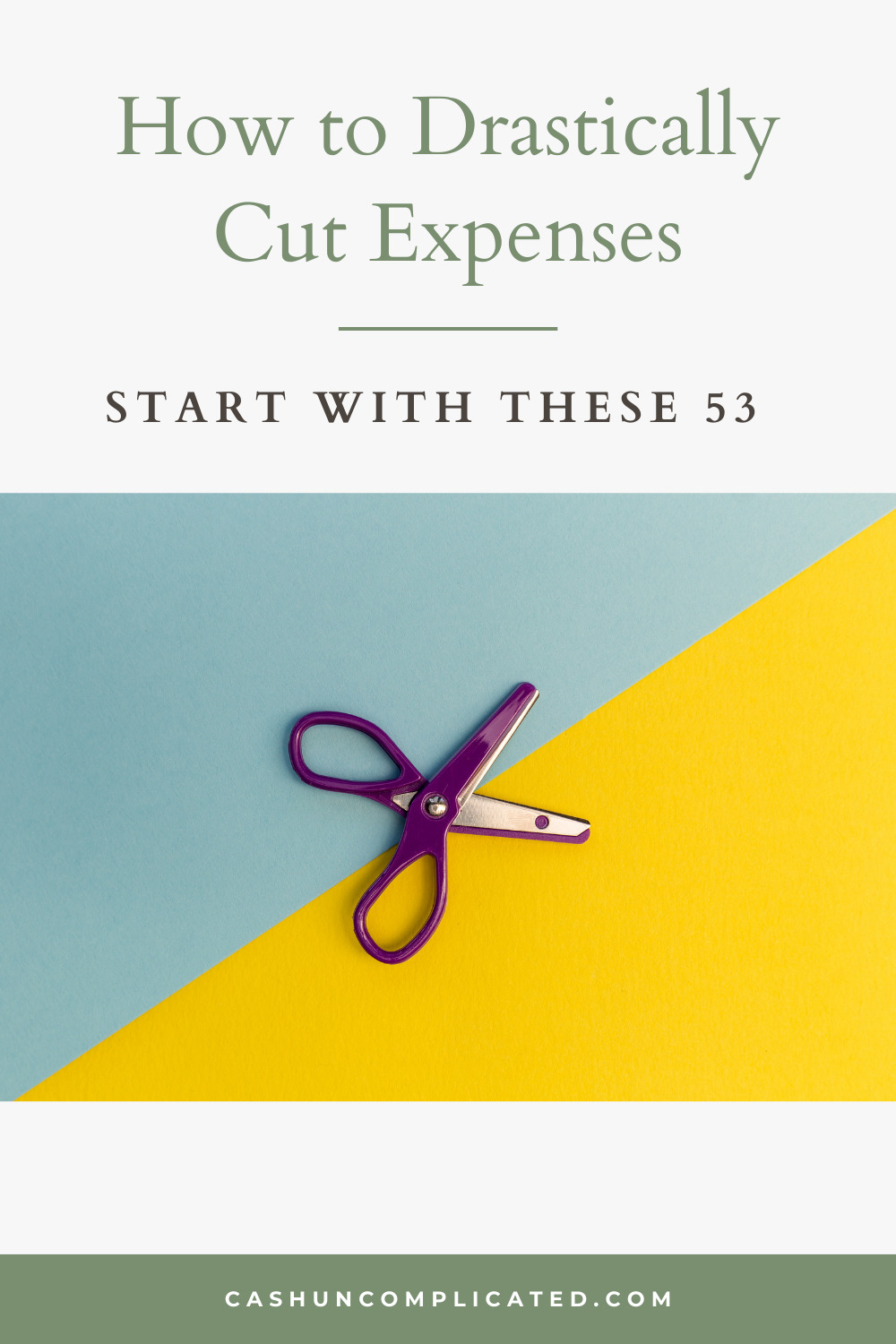It’s the week between Christmas and New Year’s. This is the time of the year where many people reflect back on the last 12 months and think about next year. This is the week New Year’s resolutions are born.
In the pre-pandemic world, I had a gym membership for most of my adult life. I had always been consistent in going to the gym, I’d routinely go twice a week, sometimes three. Very rarely would there be a week when I was in town and wouldn’t go.
I always noticed new faces at the gym in January and early February. By mid-February, the crowd of new people would start to thin out. And by March, most were gone. People made New Year’s resolutions to get in shape, gave it a try, and then stopped.
This is true in many other areas of life as well. People make resolutions to eat healthier, go back to school, read more, spend less time on their phone, have better relationships, get a new job, spend less, among myriad other things. Too many to list.
According to an article in Forbes, only 25 percent of people actually accomplish their New Year’s resolutions. It doesn’t have to be that way though. If you are making a financial resolution this year, you can keep it by following these five tips.
1). Focus on One Highly Impactful Action
In the book, The One Thing by Gary Keller and Jay Papasan, they write about focusing on the one thing that will have the most impact on your life. One of the themes of the book is that if this one thing is done, the dominos will start to fall and all other things will be easier.
For example, if you are in sales, your one thing might be to call ten customers Monday through Friday. If you are successful in doing this most important thing, other positive consequences will start to naturally occur. Ten calls a day will lead to more business generated, more referrals to other customers, more connections, better relationships with clients, less money spent on advertising, more money made, among other things.
Doing that one thing of making ten calls every day Monday through Friday creates a powerful ripple effect through all areas of the sales persons business.
If your goal is to lose weight, that one thing might be to exercise 30 minutes every day for six days a week. I don’t know about you, but after I exercise, I don’t want to eat an entire pizza and drink a 6 pack of beer. My natural inclination is to eat something healthy and drink water.
The one thing of exercising six times a week for 30 minutes at a time will likely lead to other consequences and habits such as eating healthier, exceeding 30 minutes of exercise, improving mood, increased energy, and ultimately losing weight.
In personal finance, your one thing might be to track your spending for the first three months of the year. Tracking your spending means writing down everything you purchase. Which results in thinking about if the purchase relates to your values. Which results in becoming a better value-based spender, training your mind to look for value, and ultimately spending less on items you don’t want. Which results in more money in your pocket, a better savings rate, earlier financial freedom, and more.
The decision to track spending has a positive domino effect across your entire financial picture.
Many people have good intentions but make goals that are too broad. Goals that are too broad don’t give your mind sufficient instructions to work on the goal. A goal like lose weight, make more sales, and save more money are too broad. Creating one actionable step that has a positive ripple effect will give you a much better chance of success.
2). Don’t Try To Do Too Much
This relates to the first tip. Someone who resolves to have better relationships with their family, do better with their finances, and get in shape have good intentions, but aren’t focused enough. Not only are the goals too broad, but there are too many.
In personal finance, an example of too many goals would be someone who wants to save more, invest in real estate and the stock market, pay off debt, and fully fund both of their kid’s college in less than one year. All at one time.
Too many broad goals like this will likely lead even the most devoted person to feeling overwhelmed and lost. When people are overwhelmed and lost, they give up. Going from zero to saving more, investing in real estate, paying off debt, and fully funding their kid’s college fund is too much at one time.
Set yourself up for success by focusing on one highly impactful action step. Then focus with ruthless devotion on that action. Watch the dominos fall as a result of your actions.
3). Be Value-Based
Goals and resolutions have to mean something to the person making them. Sounds like an obvious point, but not all goals are value-based. Goals don’t happen in a vacuum. There are societal influences, parental influences, peer influences and more.
Too often, people make a resolution on what someone tells them they should be doing rather than what they really want to do. For example, Kimberly’s parents tell her she needs to “grow up” and buy a house. Her mom tells her that should her resolution this year should be to buy a house.
However, Kimberly is already doing great financially; she’s investing 30% of her income, has a six month emergency fund, owns a rental property out of state, and has plenty left over to travel and do the things she wants to do. Plus, she has a great place in Midtown where she’s in a rent controlled apartment that perfectly suits her needs.
Moving out of her apartment to buy a house in the suburbs doesn’t align with Kimberly’s values right now. Buying a house might be something she wants to do a couple years from now, but not this year.
For a resolution to be truly successful it has to be something you value. This is often referred to as your “Why.” Examples would include:
- I’m going to pay off all my student loan debt so I can afford to buy a house in a good school district for my kids.
- It’s important for me to save more money this year so I can retire in two years to spend more time with the grandkids.
- I’m going to buy a house with a granny unit so I can move my aging parents in and be their caretaker.
- I will pack my lunch four times a week and use the money saved to pay off my credit card bill that’s caused me great stress over the last three years
4). Get an Accountability Partner
Never underestimate the power of positive peer pressure. An accountability partner is a great source for positive peer pressure. Imagine two scenarios:
- You are going to go for a jog by yourself every Monday, Tuesday, and Thursday after work.
- You are going to go for a job every Monday, Tuesday, and Thursday after work with your friend.
In scenario one, it’s easy to skip out on the workout if you don’t feel like going for a run. All you have to do is not do it, and nobody would know the difference.
In scenario two, it’s much harder because you have a partner. You know your workout partner wants to go for the run, she’s already changed into her workout gear, laced up her shoes, and mapped out this afternoons run. If you text her that you’re not going on the run, you have to answer to someone.
That’s not a text or call that most people want to make.
You can apply this same principle to financial goals. If your target behavior is to bring your lunch to work four times a week and your friends goal is to make dinner at home six nights a week, that’s an easy accountability partner. Both of you are trying to save money by eating out less and can provide positive peer support to each other.
A five minute Zoom one night a week or a daily text to check in on progress should do the trick. The idea is that you’re not alone and have someone to hold you accountable. The concept that someone else is involved with your goal is very powerful in itself.
5). Handwritten Goals
There is something about handwritten goals that makes them more real. It’s nice to think about your goals and talk with others about them, but writing them down creates a powerful force. Something that you wrote on a piece of paper is instructing you to do something.
A handwritten goal is a commitment to yourself in writing. You wanted to achieve this enough that you wrote it down, now you have to execute the necessary actions to honor the commitment. Everyone wants to feel like they are a person who honors commitments, especially to themselves.
I do almost all my work on my phone or computer except for two things: writing down goals and making a priority list. It’s easy for goals written on electronic devices to get buried in other things.
You may have the best of intentions to look at your goals on your phone or computer, but I’ve found nothing is as effective as a piece of paper strategically placed where you can see it on a daily basis. Reviewing your goals on an electronic device requires discipline.
You have to remember to look at the goals and take time out of your busy day to actually review them. It’s too easy to get caught up in the day and let the time slip away. With handwritten goals placed in an area you can see them, you don’t have to think about remembering to look at them.
Think about an area you naturally access at least once during the day. For me, it’s the bathroom cabinet where I keep my hygiene products. It’s natural for me to open that cabinet every day. When I open the cabinet, I see my goals. I don’t have to think about it or remember to look at them because they are a natural part of my day.
Conclusion
Don’t let your goals get away from you this year. Goals don’t have to be complicated or overwhelming. Don’t try and do too much. Keep things simple and achievable by following these tips. They’ve made a big difference in my life, and I hope they make a positive difference in yours.









This Post Has One Comment
Pingback: Measure the Actionable Steps To Reach Your 2021 Goals – Cash Uncomplicated
Comments are closed.